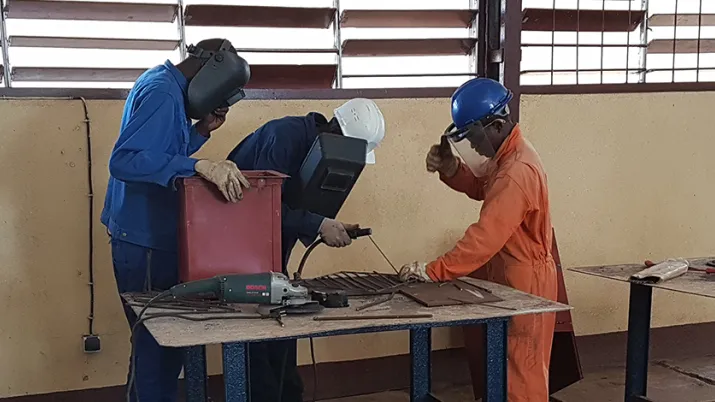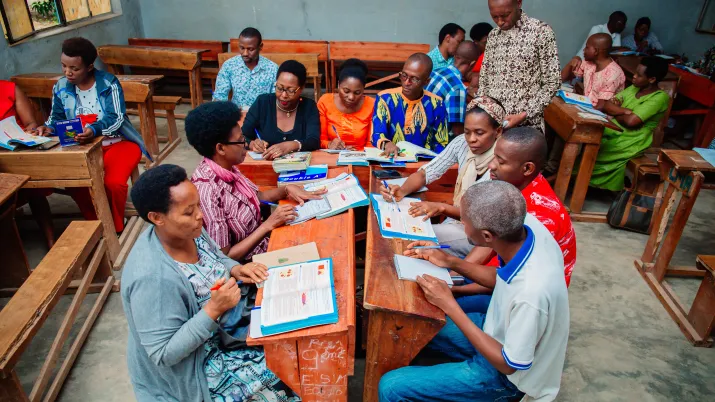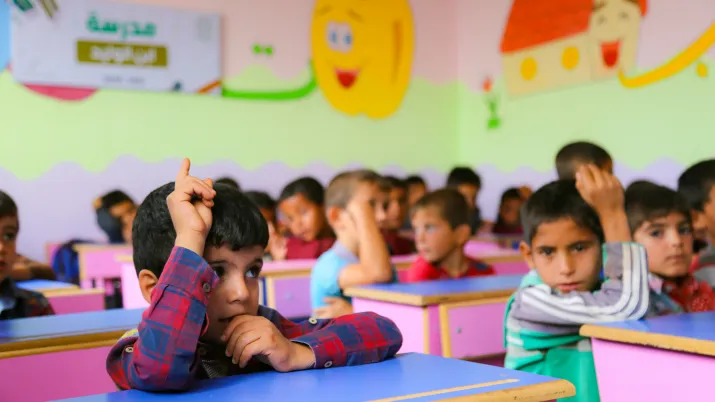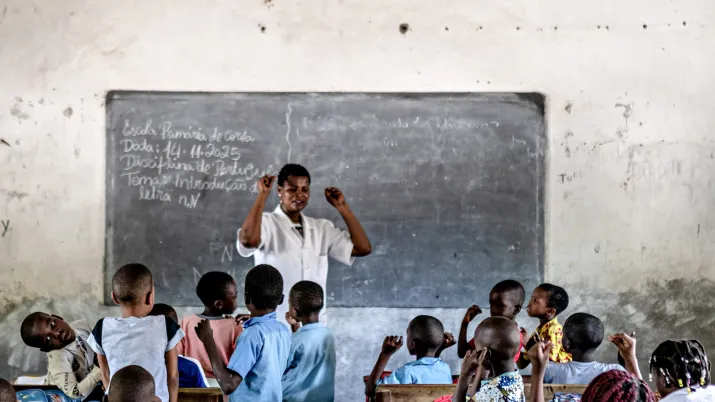Share the page
Ensuring equal opportunities and social cohesion through education
Published on
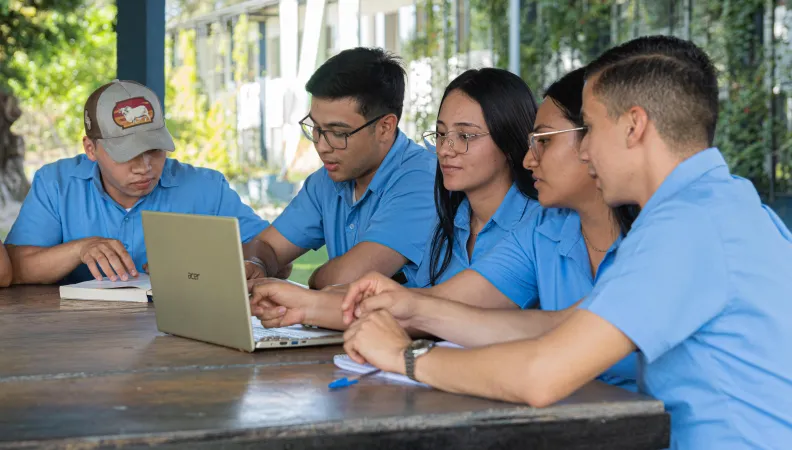
At the start of the new school year in France and in many countries around the world, Expertise France reiterates its commitment to quality and equitable education for all, and to the promotion of lifelong learning (SDG 4). But many challenges remain. In 2025, 251 million children, adolescents and young people remain out of school and, according to UNESCO’s latest Global Education Monitoring Report (GEM Report), 70% of 10-year-olds are unable to read and understand a simple text.
It is therefore essential to continue to invest in education, a cornerstone for the achievement of the SDGs, bringing sustainable benefits for present and future generations.
In both Sub-Saharan Africa and Latin America, while the geographical and institutional environments differ, education issues constitute vehicles for peace, social cohesion and the reduction of inequalities, especially gender inequalities. In these countries, the lack of infrastructure and support and the various conflicts hinder access to a stable and long-term educational pathway.
Through its contribution to the empowerment of young people and their integration into safer and more inclusive environments, Expertise France continues to use education as a tool for sustainable human development and the prevention of violence.
In Latin America, reducing social vulnerability to violence and crime by improving living conditions in conflict-afflicted areas
In El Salvador, we are implementing the AGUSTINE project, a large-scale initiative to reduce social vulnerability to violence and delinquency by strengthening education systems. Financed by the European Union, the French Ministry for Europe and Foreign Affairs, UNESCO and UNICEF (€18 million), this programme is being deployed in 129 priority districts where inequality and violence especially affect young people. The project supports national strategies, including the Institutional Strategic Plan 2025-2029 of the Ministry of Education, Science and Technology, the “Mi Nueva Escuela” reform, and the Education Sector Plan 2022-2030. It is working on three main drivers: increasing access to education, integrating the dimensions of psychological well-being and equal opportunities, diversifying education provision to improve productive skills and occupational integration, and establishing plans for the prevention of sexual violence and the promotion of equality in schools. At the same time, major national reforms, such as the redesign of technical programmes and the development of online courses, are strengthening the resilience of the entire education system.
Special emphasis is placed on civil society and dialogue between communities to facilitate the integration of the specific local conditions and ownership of these reforms. The project is thereby using schools as a place of socialisation and a space for participation and discovery, in combination with the private sphere, where a Family Education Programme aims to strengthen parenting skills.
The ultimate objective is to expand the education services offered for the development of psychosocial and socio-emotional skills, the positive transformation of conflicts, and civic participation. The gender component aims to enable schools to introduce a policy of equity and equality between young men and women and apply an education model that supports the eradication of discriminatory attitudes and practices towards women.
Another objective of these activities is to put this education into practice, by providing the keys for better occupational integration, the last link in an essential chain for empowering young people and addressing abandonment, which is a source of conflict. In this respect, support systems are being set up for young people, through work on reforming school programmes, to enable them to identify their skills and strengthen them with a view to applying for employment opportunities.
Strengthening the development of skills geared to the labour market through higher education
Africa is on the frontline of the challenges of training and employment. There is a shortage of skilled labour in many countries, despite a rich pool of young people, sometimes working in the informal sector, sometimes with no qualifications.
In the Democratic Republic of the Congo, where half of the working age population is under 29, more than 300,000 young graduates enter the labour market every year, but only 15% of them find stable employment in the year following their graduation.
To address this issue, initiatives such as the Higher Education Support Project (PAES), financed by Agence Française de Développement (€15 million) and implemented by Expertise France, aim to modernise and professionalise training programmes, in particular for engineering courses, to facilitate access to them and improve their vocational aspect. Launched in 2024 for a five-year period, it has two objectives: improve the quality and relevance of higher education and strengthen academic research. To this end, it is based on the renovation of the facilities of eight Congolese universities (buildings, libraries, digital access, sustainable energy), the creation of Franco-Congolese partnerships, the development of gender units, and support for young researchers and doctoral students. By targeting both training and research, PAES aims to provide the DRC with a higher education system able to meet the economic and social needs of the regions of Kinshasa, Tshopo, South Kivu, Haut-Katanga and Lualaba, while promoting gender equality.
In Sub-Saharan Africa, the Regional Teachers Initiative for Africa (RTIA), financed by the European Union, is an unparalleled initiative to transform teacher policies in Sub-Saharan Africa. It has been under implementation since 2024, led by Expertise France, in partnership with the cooperation agencies in Belgium (Enabel) and Finland. The RTIA facility aims to improve teacher policies. From its launch, the initiative attracted great interest, with 17 official requests from African countries and the signing of 14 grants for civil society organisations. These projects are supporting innovative pedagogical approaches based on digital technologies, the environment, gender, and support for teachers in crisis contexts.
Expertise France-IRIS White Paper – full version
Our education projects
PEERS - Africa-Europe Partnership to Exchange on Education Reforms
Ongoing
2025 - 2030
Funders : European Union
On the same topic
A teacher’s quest to protect childhood in a disaster-prone community
Mozambique is among the countries most vulnerable to climate change and natural disasters, with recurrent cyclones, floods, and droughts disrupting lives and damaging critical infrastructure. In the Z...
Published on January 26, 2026

